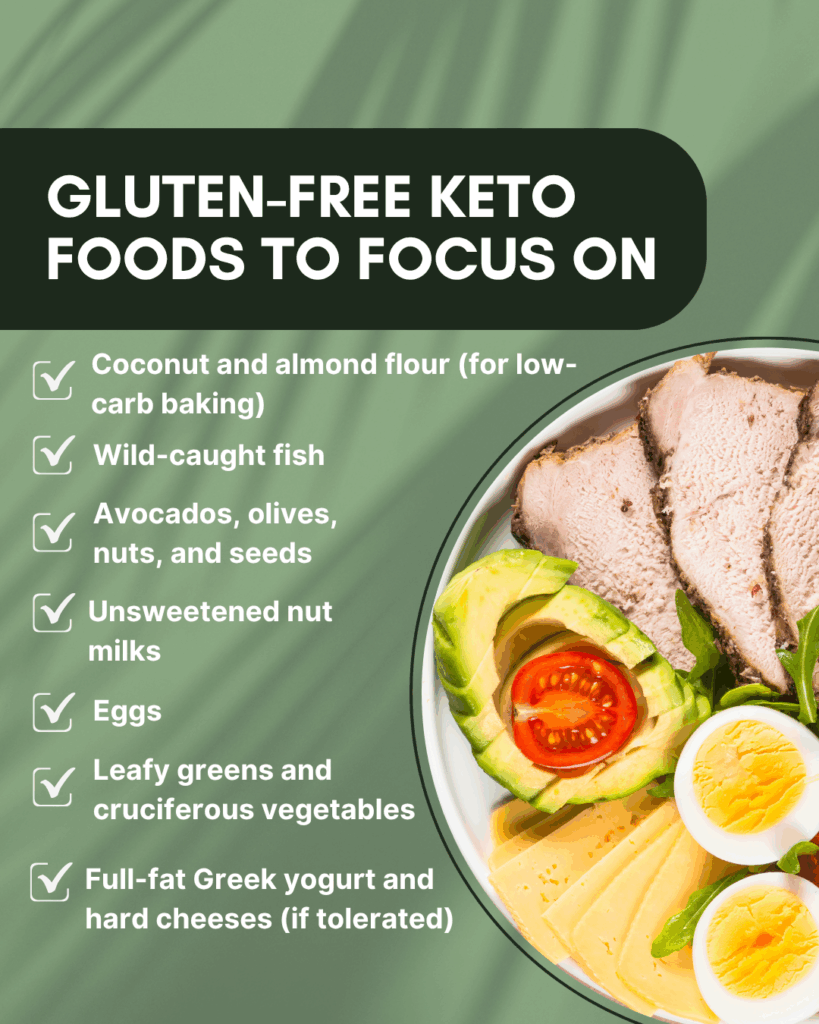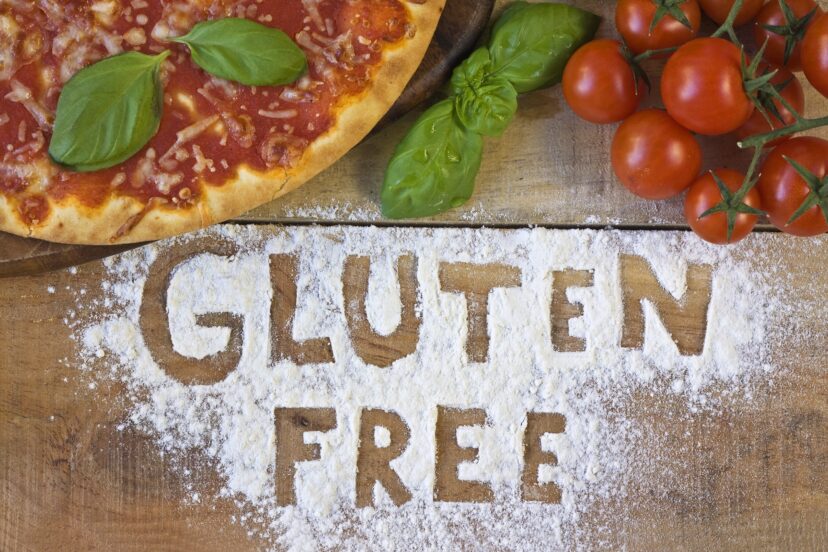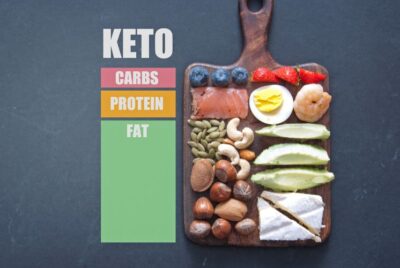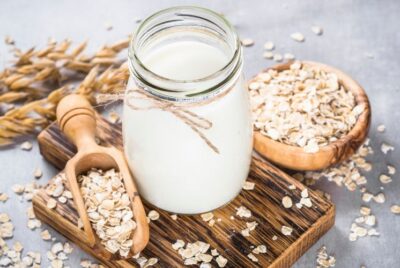Keto and Gluten: Can You Be Gluten-Free on a Ketogenic Diet?
Is the ketogenic diet gluten-free? It’s a question many people ask when trying to combine two popular lifestyles—low-carb keto and gluten-free eating. While they share a lot of overlap, they’re not the same thing. This guide breaks down everything you need to know about keto and gluten, including benefits, pitfalls, and how to succeed with both.
The Science Behind Keto
The ketogenic diet is a high-fat, moderate-protein, and low-carbohydrate eating plan designed to shift your body from using glucose (sugar) to burning ketones for fuel. This metabolic state, called ketosis, encourages your body to burn stored fat, leading to weight loss and improved energy.
But where does gluten fit in?
Naturally Gluten-Free Keto Foods
Approved foods on keto include:
These are safe for both keto and gluten-free lifestyles:
Proteins:
- Beef, chicken, pork, lamb, turkey, eggs, fish
- Bacon (check label for additives)
- Seafood
Healthy Fats:
Low-Carb Vegetables:
- Leafy greens (spinach, kale, arugula)
- Cauliflower, broccoli, zucchini, cabbage
- Mushrooms, cucumbers, bell peppers
Dairy (if tolerated):
- Cheese
- Heavy cream
- Greek yogurt (full-fat, unsweetened)
Understanding Gluten
What Is Gluten, Exactly?
Gluten is a protein found in wheat, barley, rye, and many processed foods. While harmless to most, it can trigger digestive issues, inflammation, and nutrient malabsorption in people with:
- Autoimmune disorders
- Celiac disease
- Non-celiac gluten sensitivity
Gluten is a type of protein found in certain grains, such as wheat, barley, and rye. Some people have a sensitivity or intolerance to gluten, which can cause various digestive issues.

Keto and Gluten-Free: Where They Overlap
The good news: Most keto-friendly foods are naturally gluten-free. That includes:
- Meats and fish
- Eggs and dairy
- Healthy fats
- Vegetables and some fruits
However, not all gluten-free foods are keto-friendly, and not all keto foods are automatically gluten-free (especially processed low-carb snacks or packaged keto products that may contain hidden gluten).
Benefits of a Gluten-Free Keto Diet
1. Weight Loss
Combining keto’s fat-burning effects with the removal of inflammatory gluten may lead to more efficient weight loss, especially for those with gluten sensitivity.
2. Reduced Inflammation
Both keto and gluten-free diets may help reduce inflammation, potentially easing symptoms of:
- Joint pain
- Skin conditions
- Brain fog
- Autoimmune flare-ups
3. Improved Digestive Health
Eliminating gluten can support gut health in sensitive individuals, while keto helps reduce bloating and regulate bowel movements (if fiber is adequate).
4. Enhanced Mental Clarity and Energy
A cleaner diet free from processed carbs and gluten can contribute to improved brain function, mood stability, and energy levels.
Making the Gluten-Free Keto Diet Work for You
Tips for Success
- Plan Ahead: Planning meals in advance can help ensure that they meet both gluten-free and keto guidelines. Try to include a variety of foods to ensure you’re getting a balanced diet.
- Check Labels: Gluten can hide in many unexpected places, so it’s crucial to read food labels. Also, many gluten-free products are high in carbs, which wouldn’t suit a keto diet, making label-reading even more crucial.
- Focus on Whole Foods: Most whole foods like meat, fish, eggs, vegetables, and natural fats are naturally gluten-free and keto-friendly.
- Include High-Fat Foods: Avocados, olives, and fatty fish like salmon can help you meet your keto macros.
- Hydrate and Supplement: Drinking plenty of water and supplementing with necessary vitamins and minerals (like magnesium and potassium) can help avoid keto flu symptoms.
- Consult a Dietitian: If you’re unsure or have special dietary needs, it’s always a good idea to consult with a registered dietitian.
- Try Gluten-free Low-Carb Alternatives: Use almond flour or coconut flour for baking, cauliflower for rice, or zucchini for pasta – there are many low-carb, gluten-free alternatives available now.
Remember, it’s not just about removing foods from your diet but also about enriching it with healthy, nutrient-dense options that are both gluten-free and keto-friendly.
Conclusion
Is keto gluten-free? Most of the time—yes. But it depends on how you build your plate. By choosing whole, nutrient-dense foods and reading labels carefully, you can enjoy the benefits of both keto and gluten-free living: better energy, less inflammation, and a cleaner, leaner diet.
As always, tailor your approach to your unique body, goals, and lifestyle.
Frequently Asked Questions
1. What is the key goal of the ketogenic diet? The primary goal of the ketogenic diet is to shift the body’s metabolism from burning glucose for energy to burning ketones, which are produced from fat. This metabolic state is known as ketosis.
2. What types of foods are primarily included in the ketogenic diet? The ketogenic diet primarily includes foods like meats, fish, eggs, dairy, oils, non-starchy vegetables, and low-sugar fruits. Grains, legumes, and sugary foods are typically excluded from the diet.
3. Can the ketogenic diet be considered gluten-free? There’s a significant overlap between the ketogenic and gluten-free diets, so most keto diets can be considered gluten-free. However, it’s important to remember that not all gluten-free diets are keto. Always check food labels for hidden gluten.
4. What are some health benefits of combining a gluten-free diet with a ketogenic diet? Combining a gluten-free diet with a ketogenic diet can offer numerous health benefits. Apart from potential weight loss, especially for those with gluten sensitivity, it can also help lower inflammation in the body, potentially reducing the risk of chronic diseases. Other benefits may include improved brain function, heart health, and energy levels.
5. What potential downsides should be considered when following a gluten-free ketogenic diet? When following a gluten-free ketogenic diet, it’s important to be mindful of potential nutrient deficiencies. The absence of whole grains could lead to deficiencies in B vitamins and fiber. Also, some people may experience flu-like symptoms, commonly known as the ‘keto flu,’ when starting a ketogenic diet. Always consult with a healthcare professional or dietitian to balance your diet properly.




